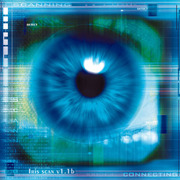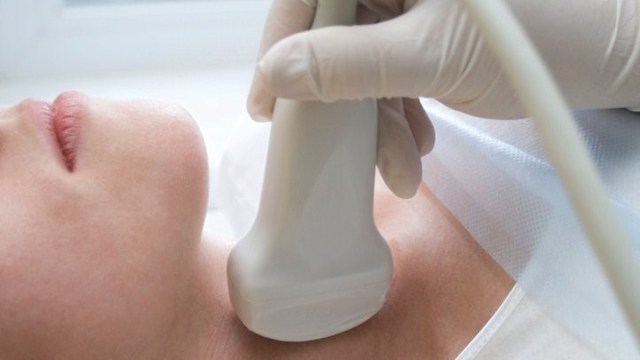 B-D-S/PhotoSpin
B-D-S/PhotoSpin
Hypothyroidism is an exhausting condition that is often ignored or misdiagnosed by medical professionals.
When women come to see their doctors with symptoms like anxiety, brain fog, depression, fatigue and weight gain, some doctors assume that the patient is malingering, maladjusted, and possibly menopausal.
They may then conclude that these women just need to suck it up and get on with it like the rest of the world.
This, of course, just makes the whole thing more depressing for the person suffering from hypothyroidism.
Many women live with this scenario, some of them eventually wondering if they are after all lazy fakers who don't know how to get along and play their part.
But those with hypothyroidism are dealing with a burdensome condition with symptoms that weigh heavily. Many chemicals have profound effects on the thyroid.
Dr. William Cole has post-doctorate training in functional medicine and nutrition. He frequently consults on areas such as chronic diseases such as thyroid disease, autoimmune diseases and digestive issues.
Cole has researched the harm that various chemicals can cause to the thyroid gland.
Here are some chemicals that can have serious negative effects on your thyroid:
Antibacterial Products
Triclosan is an example of an antibacterial addition found in many lotions, soaps and toothpastes. There is evidence that suggests that it is a hormone disruptor that hinders proper function of the thyroid gland and its hormones, according to Cole.
BPA
Bisphenol A is a chemical used in the manufacture of plastic that manages to pass as a genuine hormone, fooling the body.
It has links with cancers and is associated with problems in reproduction and premature puberty. It contributes to heart disease and obesity. Government testing has discovered BPA in 93 percent of all Americans.
The Environmental Working Group recommends eating fresh foods, avoiding the BPA lining in cans. They suggest that you find out what companies manufacture food without chemicals like BPA.
They advise that you not accept receipts made of BPA-coated thermal paper.
Dioxins
Dioxins are byproducts formed by burning bromine or chlorine in manufacturing. Dioxins accumulate in our foods and in our bodies.
They are carcinogenic. They have adverse effects on our endocrine, immune and reproductive systems. They affect sperm count and quality.
EWG says that eating less in the way of animal products may decrease your exposure to dioxins.
Fire Retardants
Polybrominated diphenyl ethers or PBDEs are used in fire retardants. They've been found to prevent thyroid hormones from doing their jobs.
Some types of PBDEs are no longer being used but their effects linger on, contaminating people and animals.
A HEPA filter for your vacuum will help to reduce PBDE effects though nothing will eliminate exposure to them, suggests EWG. Don't re-cover foam furniture. Replace carpeting with PBDE-containing padding under it.
Fluoride
Exposure to fluoride can hinder the passage of iodine. Fluoride's makeup is similar to that of iodine so it can take the place of iodine in its receptors. Iodine in the body then becomes unusable and normal function of the thyroid is decreased. T4 is not so easily converted to T3
Heavy Metals
Aluminum, lead and mercury can initiate changes that cause Grave's disease and Hashimoto's disease and other autoimmune conditions affecting the thyroid.
PCBs
Polychlorinated biphenyls were banned in the '70s yet their presence and their effects linger.
PCBs have been shown to increase thyroid-stimulating hormone and cause dysfunction of thyroid gland. Thyroid hormone is no longer as effective due to the presence of PCBs.
Liver enzymes that control thyroid hormone conversion can also be affected by PCBs.
Perchlorates
Perchlorate is found in car air bags, fireworks, jet fuel and rocket fuel. Disturbingly they are also found in our food and drinking water.
This means that if you ingest too much of it you can end up altering your thyroid hormone balance.
If you take in too high a level of perchlorates, your thyroid hormones can be thrown out of balance. Your thyroid then becomes less able to make needed hormones. Hypothyroidism ensues.
A reverse osmosis filter will protect you from some perchlorates. Getting enough iodine, for instance with iodized salt, will help somewhat in lessening the effects of this pervasive toxin.
Phthalates
Phthalates can trigger testicular cell death and reduce sperm count. Research suggests links between exposure to phthalates and defects in sperm mobility along with birth defects that affect a male embryo's reproductive system.
Studies also indicate possible links with diabetes, thyroid issues and obesity.
EWG advises that you stay away from plastic food containers, toys, and wrap containing PVC with a recycling label #3. Phthalates are in many personal care items, including some that list it as Fragrance.
Soy
Soy can disrupt thyroid function by interfering with the body's ability to use iodine. Iodine would then be less able to help create thyroid hormones. Thyroid hormone secretion can drop and levels would be insufficient for the body to use. Conversion of T4 to T3 can also be interfered with.
Sources:
Dr. William Cole. Mindbodygreen.com. Retrieved Jan. 29, 2015.
http://www.mindbodygreen.com/wc/dr-william-cole
11 Everyday Toxins That Are Harming Your Thyroid. Mindbodygreen.com. Retrieved Jan. 27, 2015.
http://www.mindbodygreen.com/0-12346/11-everyday-toxins-that-are-harming...
Dirty Dozen List of Endocrine Disruptors. EWG.org. Retrieved Jan. 27, 2015.
http://www.ewg.org/research/dirty-dozen-list-endocrine-disruptors
Visit Jody's website at http://www.ncubator.ca
Reviewed January 29, 2015
by Michele Blacksberg RN






Add a CommentComments
There are no comments yet. Be the first one and get the conversation started!